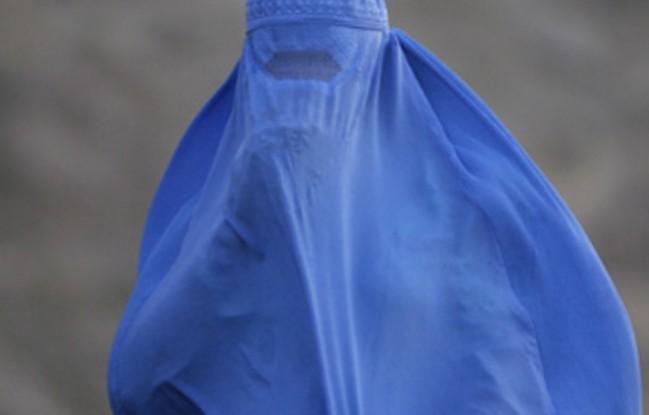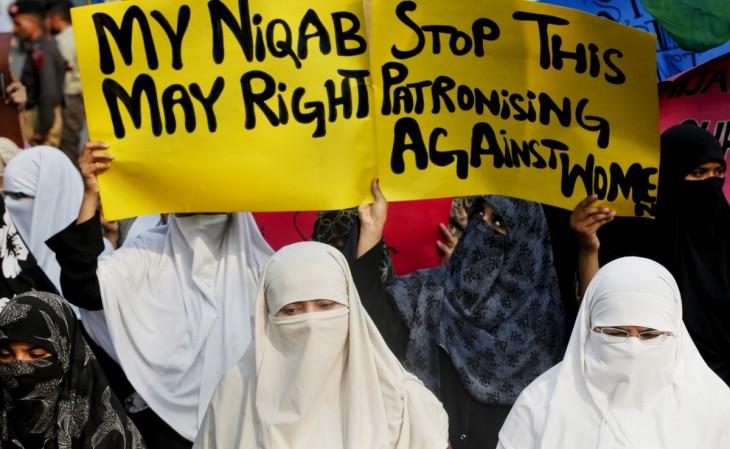
Denmark has become the latest country in Europe to ban attires that cover one's face, which includes the burqa and the niqab worn by many Muslim women. While the ban was proposed in 2017, the Danish Parliament voted in its favour on Thursday, May 31.
After receiving 75 votes in favour of the ban, the law will come into effect on August 1, 2018, and violations will carry a penalty of 1,000 kroner ($156) for first-time offenders and about 10,000 kroner ($1,568) by the fourth violation, reported Reuters.
A niqab covers everything apart from the eyes, whereas a burqa also covers the eyes with a transparent veil. About 200 women reportedly cover their faces in Denmark and this ban is set to affect all of them.
Defending its decision, the Danish government said that the ban was not aimed at a particular religion and would cover all kinds of face veils such as balaclavas. However, the ban will not affect other things such as turbans, headscarves, and Jewish skull caps.
Justice minister Soeren Pape Poulsen said that the police would be entrusted with the monitoring and they would use their "common sense" and check for people violating the law. If found with a face covering at a public place, people would be asked to go home.
"With a ban on covering the face, we are drawing a line in the sand and underlining that in Denmark
we show each other trust and respect by meeting face to face," the Huffington Post quoted Poulsen as saying.
Meanwhile, Denmark is not the only European nation to impose the restriction, which is popularly called the "burqa ban." Austria, Belgium, the Netherlands, Bulgaria and the German state of Bavaria imposed this ban quite some time ago. The first country to ban a Muslim veil was France and the restriction came into effect in 2011.
Why have nations banned burqa and why the debate?
The European nations have banned the burqa and niqab and this has been a hot topic of debate for a while now. While some believe that women should be allowed to choose what they wear – full-face coverings or not -- some believe that such coverings oppress the women and it is almost like they are not allowed to have a voice. Several countries have also said covering the face creates security issues.

The Norwegian government had earlier said that veil in all the schools, nurseries and educational institutions must be banned as it obstructs "good communication" between pupils and teachers.
"We do not want clothes covering the face in nurseries, schools and universities... These clothes prevent good communication, which is important for students to receive a good education," Minister of Education and Research Torbjorn Roe Isaksen had earlier said in a statement.
"Clothes covering the face, like the niqab and the burqa, have no place in Norwegian schools. It is a fundamental value to be able to communicate with each other," AFP had quoted Norwegian politician Per Sandberg as saying.
The French Ambassador to the United States Gerard Araud had also earlier said that burqa was not a neutral attire. "A burqa is not a neutral attire. It conveys a conception of the woman as an object of lust, a subject and not an agent of history," he had tweeted.
However, University of Oxford lecturer Sundas Ali believes that the ban isn't really fair and also said that extremism has affected the way the Islamic attire is treated. "I think in public a Muslim woman, or anybody really, should be allowed to dress however they want -- so long that it doesn't disrupt society or social harmony," CNN quoted Ali as saying.
Shereen El Feki, author of 'Sex and the Citadel: Intimate Life in a Changing Arab World', also told CNN that a burqa or niqab doesn't always mean oppression and a lot of time, women wear it on their own will as per their interpretation of their religion.
"For some it's fashion, for others it's clearly an expression of their modesty and how they interpret Islam. And for a lot of women it's freedom," Feki added. "It's a tool of empowerment."

















